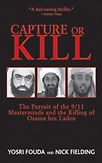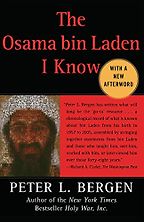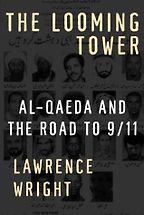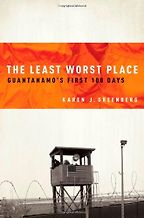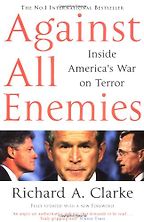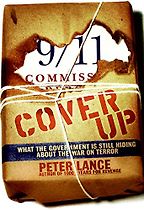Peter Bergen’s book is called The Osama bin Laden I Know. Did he know him?
Yes. This book is very comprehensive. It’s just about the best reference book in America when it comes to bin Laden, as far as the establishment is concerned. Bergen met bin Laden once – he was a producer for CNN and he arranged the meeting with local people who gave him access. He took along the correspondent, Peter Arnett, and they talked in some detail. The idea of the book is that he interviewed many people who knew bin Laden personally and who studied him and who followed him. It’s a personal account and it makes it more vivid for people and helps them to relate to it more.
I don’t think the average reader knows why bin Laden decided to leave life and the world and all that it offered, especially as he came from this famous, rich family, and why he decided to live off bread and water in a cold cave. Peter Bergen believes, even now that al Qaeda is dismantled, that bin Laden is very important. I agree that he is important, but I disagree in the sense that if you focus only on him then you miss the people on the ground like Mohammed Atta.
Bergen thinks it’s the leadership, but I think that without Mohammed Atta 9/11 wouldn’t have happened. It’s the small people on the ground willing to die, but there are a lot of those. If they are willing to die and capable of pulling something together then you have a deadly combination. I don’t think al Qaeda recruited Mohammed Atta. I think Mohammed Atta recruited al Qaeda. It suited him and he needed an umbrella for his frustration. There is never a shortage of people who want to die, but al Qaeda was shopping for people of this kind of calibre.
When I met Khalid Sheikh Mohammed, the real mastermind of 9/11, he said there was no shortage in what he called the department of martyrs – the problem he had was keeping a lid on them. What he needed but what he didn’t have was people who read and speak English, who know the lifestyle, who can integrate and are intelligent but frustrated perfectionists. Before they had Mohammed Atta they had these two Saudi guys in California who were referred to everywhere as Dumb and Dumber (Khalid Almihdhar and Nawaf Alhazmi).
This book is a great reference when it comes to the mindset of al Qaeda.
What did motivate bin Laden to abandon his background for bread, water, and terrorism?
Well, he started highlighting the problems of the ruling family in Saudi Arabia and he moved on to looking at corrupt Arab leaders who were supported by America. He found that you can’t get through to the corrupt leaders if America keeps interfering. He is not interested in hurting the US just for the sake of it. He’s a Caliphist – he’s interested in purifying Islam in his own way, going back to the early days of Islam, pure and free of corruption.
“I think that without Mohammed Atta 9/11 wouldn’t have happened.”
This book is a great insight into bin Laden and what he believes in, how he developed and how he came to express himself in the end. You will hardly come across anyone in the Arab world who would disagree with what, but you will hardly come across anyone who would agree with how.
Now Lawrence Wright’s book, The Looming Tower.
I have just interviewed him for my show, actually. He is an old friend. This book has similarities with the first, but Lawrence is aware of how to tell a story, how to make it appeal to an audience. He lived in Egypt in 1969-1971 and then in Saudi Arabia where he wrote the book. The title is a quote from the Quran: ‘Wherever you are, death will find you, even in the looming tower.’
He did five years of research and met over 600 people. It is a vast research on how we arrived at 9/11, the circumstances and the mindset. It has a huge scope. He studies the socio-economic background to 9/11 and the people who knew Osama. He had 6,000 pages of notes…
And does he draw any conclusions?
It’s not like the last few pages are the conclusions he comes to, but you get a kind of picture. He talks about the socio-economic dependency of women, and the hypocrisy you get in this part of the world. I would like him to have highlighted, or refuted, if that’s what he found, the influence of the political situation and why people would feel strongly enough to kill themselves for a cause, the relationship between the Arab world and the West, the Palestinian situation, Israel. But it’s more about the culture of hypocrisy that doesn’t produce the best. A culture that produces frustration rather than hope.
Karen Greenberg’s The Least Worst Place.
Greenberg is the director of the Centre on Law and Security at NYU and she’s very critical of the Bush era and all the practical aspects of it, especially detention. She’s done some great work here on Guantanamo and its first 100 days. She tackles it from a legal point of view which is very interesting, what it means and how it is possible, if at all, to get out of this mess. She has good relationships with the army, the justice department and the international community, so she’s very well informed and it’s a good reference on what took place in Guantanamo.
She concludes that it was a fully-fledged state-sponsored practice including the enhanced interrogation techniques, i.e. torture. She shares with Obama the view that it needs to be delicately and sensitively dealt with in order for America to recapture the moral high-ground, which it really did lose over this. She believes that Obama should come out and say sorry.
Tell me about Richard Clarke’s book, Against All Enemies.
Richard Clarke was the man who ruled America on 9/11 when the rulers were all trying to hide underground.
I thought Bush was in the air?
He was taken to an air base to hide until people figured out what was happening. He was not taken back to the White House immediately. Dick Cheney and Condoleezza Rice were taken by the secret services to the White House underground hideout.
Dick Clarke stayed in the situation room and he tells of the internal situation, like when the President eventually did return to the White House and they decided at a meeting that it was al Qaeda and were discussing what would be a good response. After which, Bush pulls him out of the room and says: Can you find a Saddam angle on all this?
Clarke says: But we just decided…
And Bush says: I know, I know, but try again.
So, for those leaders who lack evidence that Iraq was already there on the table and 9/11 was used as a pretext then they can find it in this book. When I first saw it I thought: Oh gosh. I mean, we knew it, of course, but to see it there like that, it’s compelling, it’s … in your face.
And Peter Lance’s book, Cover Up.
This book is about missed opportunities. It has two main concepts – the conspiracy theories and the missed opportunities. Ever since 9/11 happened so many people have said that America did it to itself, and no matter what evidence is presented to them they still think it. Unlike Thierry Meyssan’s book on the conspiracies (9/11: The Big Lie), this book is more about the missed opportunities and it concludes that there might have been a cover-up.
Five Books interviews are expensive to produce. If you're enjoying this interview, please support us by donating a small amount.
People in the loop, like Michael Scheuer, head of the CIA’s bin Laden unit, talks about at least eight golden opportunities they missed. The 9/11 report cites two opportunities to get bin Laden himself, but that were called off. Peter Lance tries to deal with the conspiracy theories and substantiates why they are unconvincing. He poses interesting questions about what was going on on the day itself. Why were there military exercises done that same day in which some planes were acting as hijacked? Who ordered the exercises and how were they scheduled? He mentions the memo from the CIA that was included in the daily briefing to Bush six weeks before 9/11, clearly saying that bin Laden was determined to strike inside America, mentioning cells active in the US. Lance compiles the missed opportunities and is trying to get someone to be accountable.
In my opinion the 9/11 Commission Report is a disgrace. There has never been a proper investigation into what happened. The Report is a nicely written account, but it blames failure of imagination for the fact that it took the country by surprise. This is not true. President Bush himself, when he was at the G8 in Genoa that May, had intelligence leaked by the Russian and Egyptian security services that caused the air space over the summit to be closed. That nobody could have imagined an attack like 9/11 is a little bit far-fetched.
Are you saying that you think the American government let it happen in order to use it as an excuse to wage war, or merely that they were incompetent?
I don’t know. What I’m sure about is that al Qaeda wanted, planned, financed, recruited and went on in its way to execute what came later to be known as 9/11. Did anyone in America, or anywhere for that matter, know anything about that? If yes, who, when, where? Were they in a position to do something about it? Did they try to do something about it? If yes, what? If no, why not? And would what they did – or did not do – have helped in the way of preventing what happened?
These are all crucial questions, especially in light of so many confirmed missed opportunities. One wonders why there hasn’t been a serious investigation into this. This is what I mean when I say that the report produced by the 9/11 Commission (politically comprising five Democrats and five Republicans, with an army of researchers, nearly two years of time and unconditional resources) is a crime against all Americans, especially those who died and their relatives, an insult to our intelligence and a disgrace to humanity.
This interview was published on September 28th, 2009
September 28, 2009. Updated: August 2, 2023
Five Books aims to keep its book recommendations and interviews up to date. If you are the interviewee and would like to update your choice of books (or even just what you say about them) please email us at [email protected]

